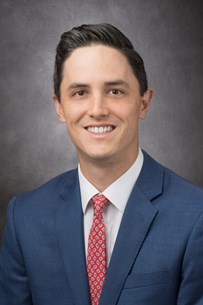Meeting
2019 ASCO Quality Care Symposium

The University of Texas MD Anderson Cancer Center, Houston, TX
Ryan Huey, Goldy George, Penny Phillips, Revenda White, Siqing Fu, Filip Janku, Daniel D. Karp, Aung Naing, Sarina Anne Piha-Paul, Vivek Subbiah, Apostolia Maria Tsimberidou, Shubham Pant, Timothy A Yap, Jordi Rodon Ahnert, Funda Meric-Bernstam, Ya-Chen T. Shih, David S. Hong
Background: Clinical trials are an important therapeutic option for cancer patients. Although financial burden in cancer treatment is well-described, the financial burden associated with clinical trials is not well understood, especially for patients with lower socioeconomic status. Methods: We conducted a survey regarding economic burden and financial toxicity among cancer patients on Phase I clinical trials for at least 1 month. Financial Toxicity Score (FTS) was assessed using the validated COmprehensive Score for Financial Toxicity (COST) survey (scale 0-44, lower scores indicating worse financial toxicity). Patients also reported monthly out of pocket (OOP) medical and non-medical expenses. Results: Of 147 consecutive patients approached, 105 agreed to participate; median age = 60y; 62% female; 49% had annual income < $60K; 50% lived < 300 miles from the clinic; 34% required air travel; 41% had Medicare, 50% had employer sponsored insurance. Median FTS = 20, with interquartile range of 12.5. Median monthly OOP costs for non-medical expenses was $985, and for medical expenses was $475. Median total monthly OOP costs was $1695. Compared to patients in the highest quartile of FTS, a significantly lower % of patients in the lowest (worst) quartile of FTS had incomes > $60K (27% v. 77%, P < 0.001), and a significantly higher % were unemployed or not working outside the home (54% v. 12%, P = 0.001), and incurred higher than expected medical (39% vs. 12%, P = 0.025) and non-medical (64% vs. 15%, P = 0.003) expenses. Compared with patients for whom medical costs were not much higher than expected, a significantly higher % of patients with medical costs much higher than expected were non-White (77% v. 46%, P = 0.004) and unemployed/not working outside the home (46% v. 19%, P = 0.009). Conclusions: Among cancer patients participating on clinical trials, economic burden is high and financial toxicity is disproportionally higher in patients with lower income. OOP costs can be substantial and are often unexpected for patients.
Disclaimer
This material on this page is ©2024 American Society of Clinical Oncology, all rights reserved. Licensing available upon request. For more information, please contact licensing@asco.org
2019 ASCO Quality Care Symposium
Poster Session
Poster Session B: Patient Experience; Safety; Technology and Innovation in Quality of Care
Patient Experience,Technology and Innovation in Quality of Care,Safety
Value/Cost of Care
J Clin Oncol 37, 2019 (suppl 27; abstr 8)
10.1200/JCO.2019.37.27_suppl.8
8
B1
Abstract Disclosures
2023 ASCO Annual Meeting
First Author: Giusti Raffaele
2020 ASCO Virtual Scientific Program
First Author: Ryan Huey
2023 ASCO Quality Care Symposium
First Author: Pooja Karukonda
2019 ASCO Annual Meeting
First Author: Ryan Huey